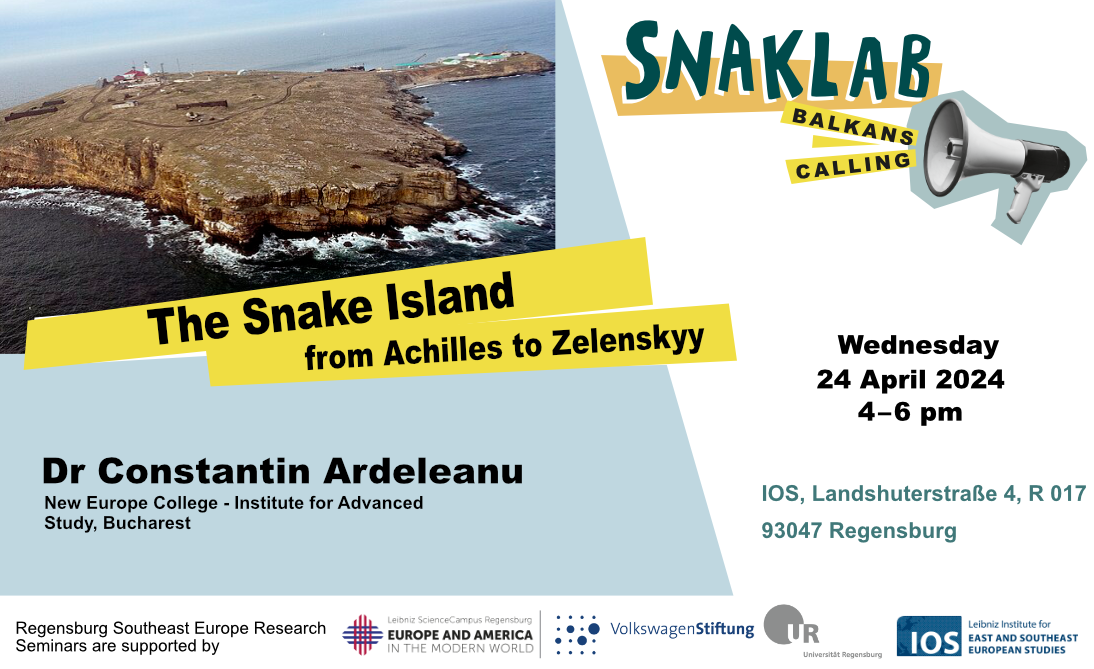SNAKLAB Talk | 24 April, 16:00 | Constantin Ardeleanu (Bucharest) | The Snake Island from Achilles to Zelenskyy
When? Wednesday, 24 April, 16:00–18:00
Where? Room 017, Altes Finanzamt, Landshuter Str. 4
Constantin Ardeleanu:
Constantin Ardeleanu is Senior Researcher at the Institute for South-East European History and Long-Term Fellow at the New Europe College, Bucharest, specialised in the social and economic history of Danubian Europe and the Black Sea region since the 18th century. Formerly a Professor of Modern Romanian history at Dunărea de Jos University of Galaţi, he has extensively published on topics related to the opening of the Black Sea to international trade and shipping, and the market integration of South-Eastern European port cities. Since 2022, Constantin Ardeleanu is PI of a sub-group of the research project "Entangled Histories of the Danubian Quarantine System (1774–1914)," where he delves into micro-historical case studies within Central-South-East Europe, analysing various forms of favoritism, patron-client ties, and informal associations during the period. Throughout April 2024, Ardeleanu is visiting fellow of the Leibniz ScienceCampus.
Abstract:
A tiny islet in the north-western part of the Black Sea, about 45 kilometers east of the Danube Delta, the Snake Island has a fascinating history, which in fact illuminates larger aspects related to the history of the region. The island was “rediscovered” in the early 19th century, when classical historians looking from Greek-Roman artifacts in the Ukrainian provinces of imperial Russia identified the island as the ancient Leuke, home of a famous Greek temple to Achilles. The temple made way to a lighthouse, which guided ships carrying grain from both Southern Ukraine and the Danube Delta. In 1856, at the end of the Crimean War, the island was “returned”, with British support, to the Ottoman Empire, and in 1878 the island and the neighboring Delta became Romanian territory. It was annexed in 1948 by the Soviet Union; since 1991, the island has remained part of independent Ukraine. In the 2000s, delimitation of the maritime boundary close to the Snake Island was the object of a Romanian-Ukrainian trial in front of the International Court of Justice. Not least of all, with Russia’s full-fledged war against Ukraine, the Snake Island has assumed new relevance in Ukraine’s defense and in president Zelenskyy’s addresses to the Ukrainian nation.
My talk aims to briefly present what makes the history of this place so interesting and worthwhile being studied by those interested in Black Sea history.
This event is part of the seeFField Snaklab series.

